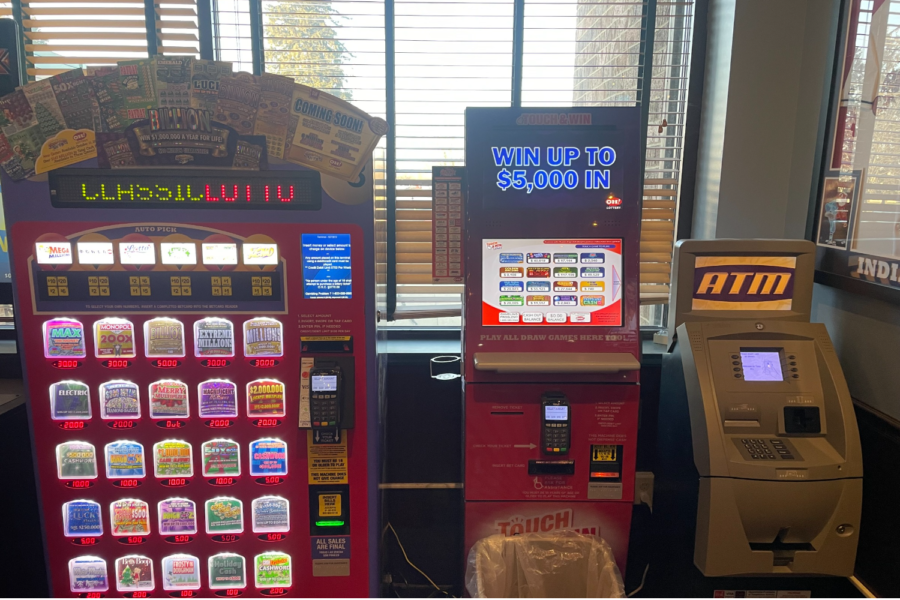On New Year’s Day, Ohioans over 21 were granted access to legally gamble on sports games, a move that could potentially impact BW students and athletes.
Ohio Governor Mike DeWine signed House Bill 29 into law on Dec. 22, 2021, which mandated that sports gambling, including online bets, would be legalized and regulated by Jan. 1. Although Ohioans are actively betting on N.C.A.A. Division I sports, it is unlikely that college teams participating in Division III, of which Baldwin Wallace University is a member, will be available for wagering, said Charles Campisi, associate professor and chair of marketing and sport management.
“I just don’t think there will be for the time, effort, energy that would need to be required for the casinos to necessarily do that,” Campisi said. “For some big games, once you get to the playoffs, then maybe you’ll see N.C.A.A. tournament-type stuff.”
As the burgeoning field continues to grow, Steve Thompson, BW athletic director, said the sports betting industry may open some potential job opportunities for individuals like BW sports management students. Thompson referenced a former student that he knew from Bethany College who now works for the betting company FanDuel.
To protect student-athletes and maintain the integrity of games, the N.C.A.A. prohibits any student-athlete or athletic employee from wagering on any N.C.A.A.-sponsored event or telling others details that will be used for sports betting. If that rule is violated, student-athletes could lose eligibility for competition. Thompson said he will try to educate and communicate this to students, but it could be challenging for the N.C.A.A. to ensure that all the student-athletes in the state are not participating.
“That’s a lot of people to track, and I just think it’s gonna be really hard to do that.” Thompson said. “Thankfully, they’re not able to bet on BW games, so there’s not the bad concerns where sports gaming goes. I don’t think any of our student-athletes would throw games.”
Thompson said a concern he has is students exceeding their financial limits. He said students who are already tight on cash might see the betting advertisements – which he said are targeting sports fans and younger people – as an easy solution.
Some sports betting companies have already come under fire for violating provisions regarding advertising. Barstool Sportsbook may receive a fine of $250,000 from the Ohio Casino Control Commission after advertising at a University of Toledo college football event, and DraftKings faces an even larger fine of $350,000 from the commission for directing advertisements to people under the age of 21.
Joey Frehmeyer, a senior sport management student, told The Exponent that he began participating in sports gambling through apps on his cell phone after seeing an advertisement on Cleveland.com where the betting companies offered “free money” just for signing up. (Promotions advertising “free money” or “risk-free” bets often require a wager of actual money, and then subsequent refunds for bets that do not win.)
“If you’re using the free money and you just put like small bets and don’t do it every day obviously, then I don’t see it becoming a big thing for me and my friends really,” Frehmeyer said.
In order to reduce the problems associated with gambling addiction, the O.C.C.C. requires that all advertisements for sports betting require a clear and responsible gambling message. Franks said that from a survey conducted from 2016-2017, the commission found that some Ohioans were participating in problem gambling, but because sports betting was illegal at the time, she said that those struggling may not have wanted to ask for help.
“We’re trying to reduce that stigma of reaching out for help knowing that help is available and how to find that help,” Franks said.
H.B. 29 passed with a large majority of votes in the Ohio House and Senate. Bride Rose Sweeney, the Ohio State Representative representing Berea, cosponsored the bill and said one of the reason for the support was that keeping sports gambling illegal was difficult to regulate.
“We have to take into account what other states are doing because they do impact us,” Sweeney said. “And it’s really hard to regulate, or to figure out people who are making illegal votes sitting in Westlake, Ohio making a bet in another state.”
One sports bookmaker operating in the unregulated sports betting market from an out-of-state underground proprietor – whose identity is known to The Exponent but spoke on the condition of anonymity in order to discuss this matter freely – said their profits will decrease as a result of the legalization.
“I definitely think I’ll see drawbacks from player count and wager count with it being legal,” the bookmaker said. “But I also see the other side of the viewpoint where sometimes the legal apps make it difficult to take your money out whenever you want, and just dealing with someone that is more underground, they can pay you whenever.”
Sweeney said she found support for H.B. 29 from her constituents, describing the bill as having received higher than normal engagement. She said support came from small business owners who wanted gaming kiosks to bring in more business.
One Berea business close to BW, Tony K’s Bar & Grille, received its type C sports gaming license, a license designated for businesses that have a liquor license and want a gaming kiosk or clerk-operated gambling terminal. Currently, Tony K’s offers betting in conjunction with an app where users scan a QR code and then pay directly at the restaurant. The restaurant’s general manager, Alysson Shaw, said its self-service sports betting kiosks will be operational soon.
“I haven’t had too many people coming up to play with it yet, just because it is strictly through the app,” Shaw said, “but I’m sure once it’s available, we’ll get a lot more sales from it.”
This story was originally published on The Exponent on January 20, 2023.











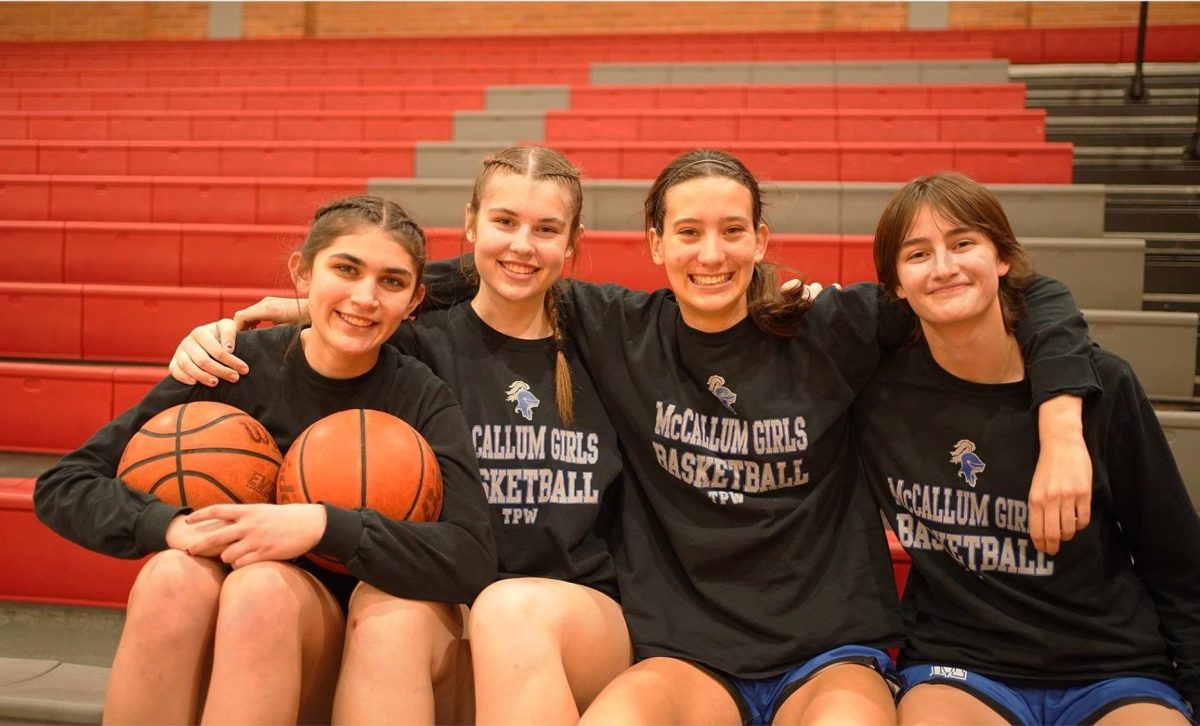
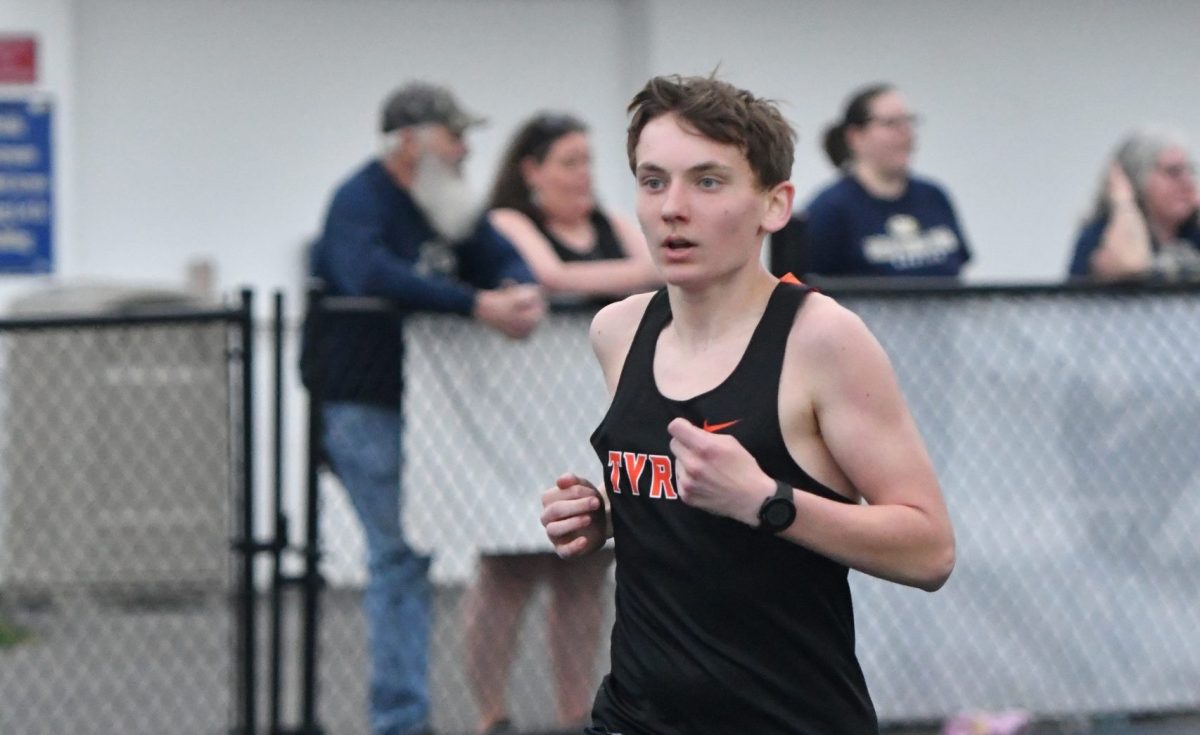

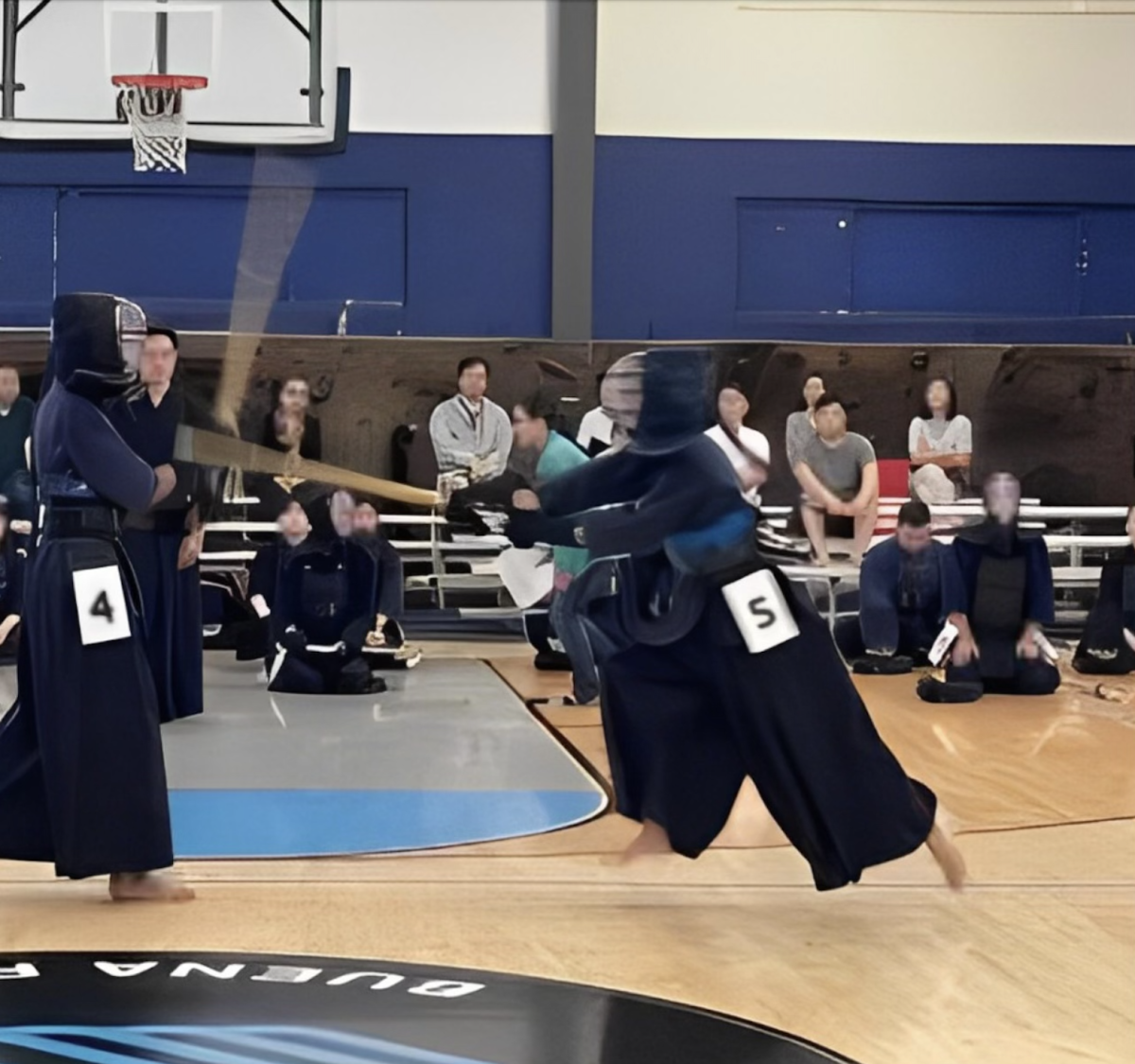
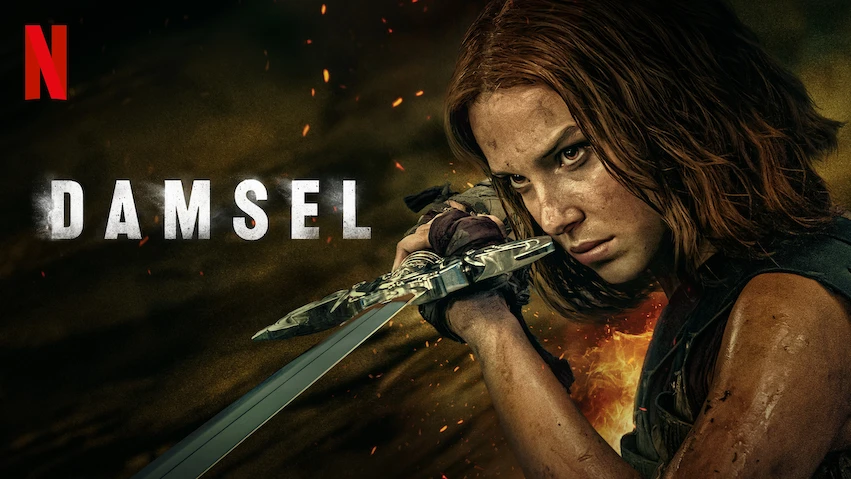

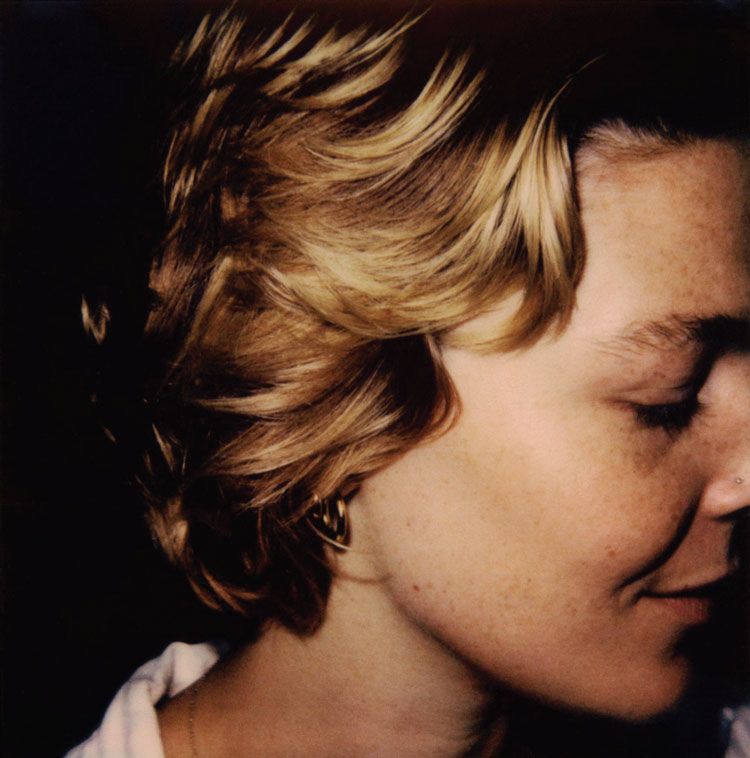













![IN THE SPOTLIGHT: Junior Zalie Mann performs “I Love to Cry at Weddings,” an ensemble piece from the fall musical Sweet Charity, to prospective students during the Fine Arts Showcase on Wednesday, Nov. 8. The showcase is a compilation of performances and demonstrations from each fine arts strand offered at McCallum. This show is put on so that prospective students can see if they are interested in joining an academy or major.
Sweet Charity originally ran the weekends of Sept. 28 and Oct. 8, but made a comeback for the Fine Arts Showcase.
“[Being at the front in the spotlight] is my favorite part of the whole dance, so I was super happy to be on stage performing and smiling at the audience,” Mann said.
Mann performed in both the musical theatre performance and dance excerpt “Ethereal,” a contemporary piece choreographed by the new dance director Terrance Carson, in the showcase. With also being a dance ambassador, Mann got to talk about what MAC dance is, her experience and answer any questions the aspiring arts majors and their parents may have.
Caption by Maya Tackett.](https://bestofsno.com/wp-content/uploads/2024/02/53321803427_47cd17fe70_o-1-1200x800.jpg)
![SPREADING THE JOY: Sophomore Chim Becker poses with sophomores Cozbi Sims and Lou Davidson while manning a table at the Hispanic Heritage treat day during lunch of Sept 28. Becker is a part of the students of color alliance, who put together the activity to raise money for their club.
“It [the stand] was really fun because McCallum has a lot of latino kids,” Becker said. “And I think it was nice that I could share the stuff that I usually just have at home with people who have never tried it before.”
Becker recognizes the importance of celebrating Hispanic heritage at Mac.
“I think its important to celebrate,” Becker said. “Because our culture is awesome and super cool, and everybody should be able to learn about other cultures of the world.”
Caption by JoJo Barnard.](https://bestofsno.com/wp-content/uploads/2024/01/53221601352_4127a81c41_o-1200x675.jpg)





